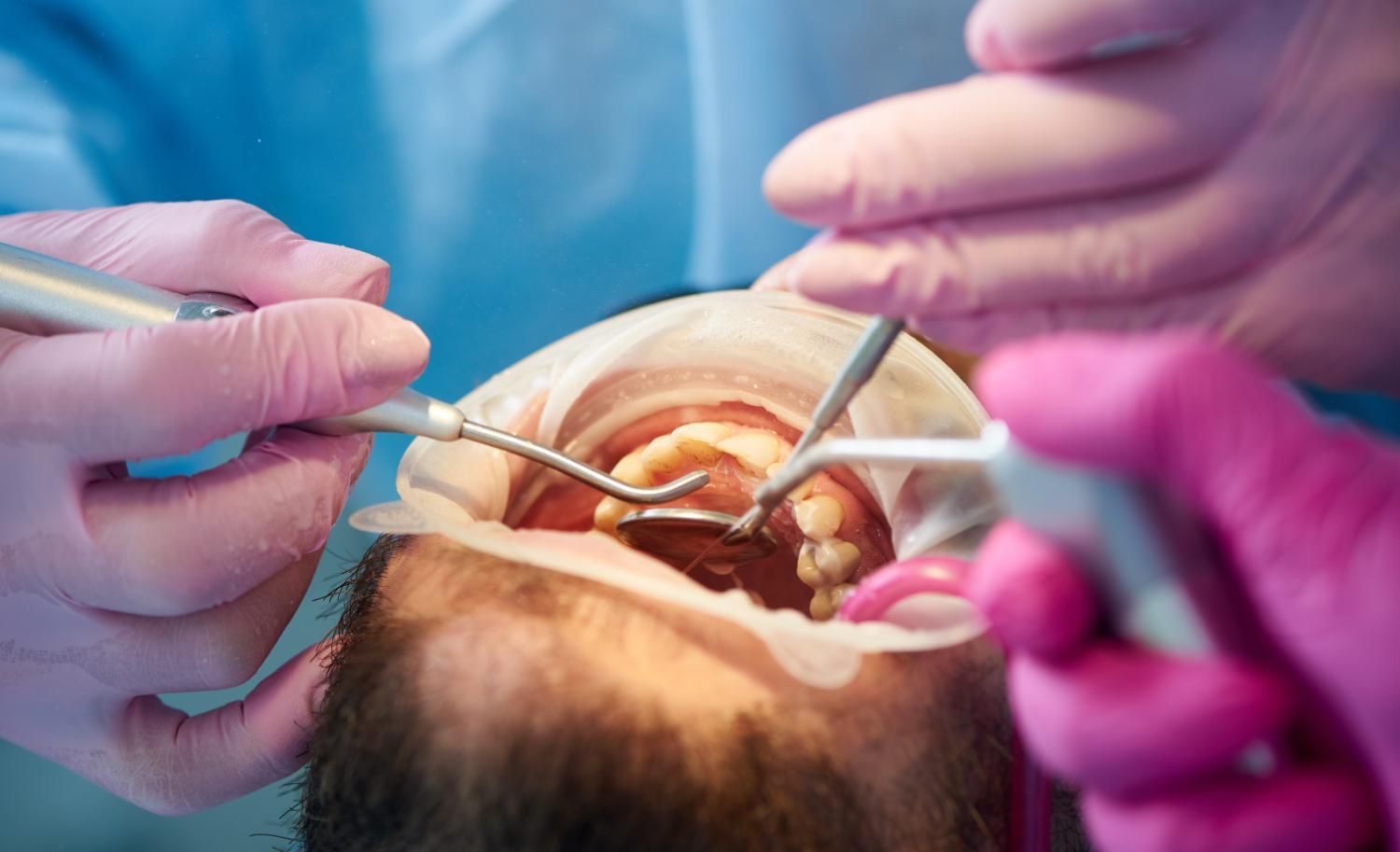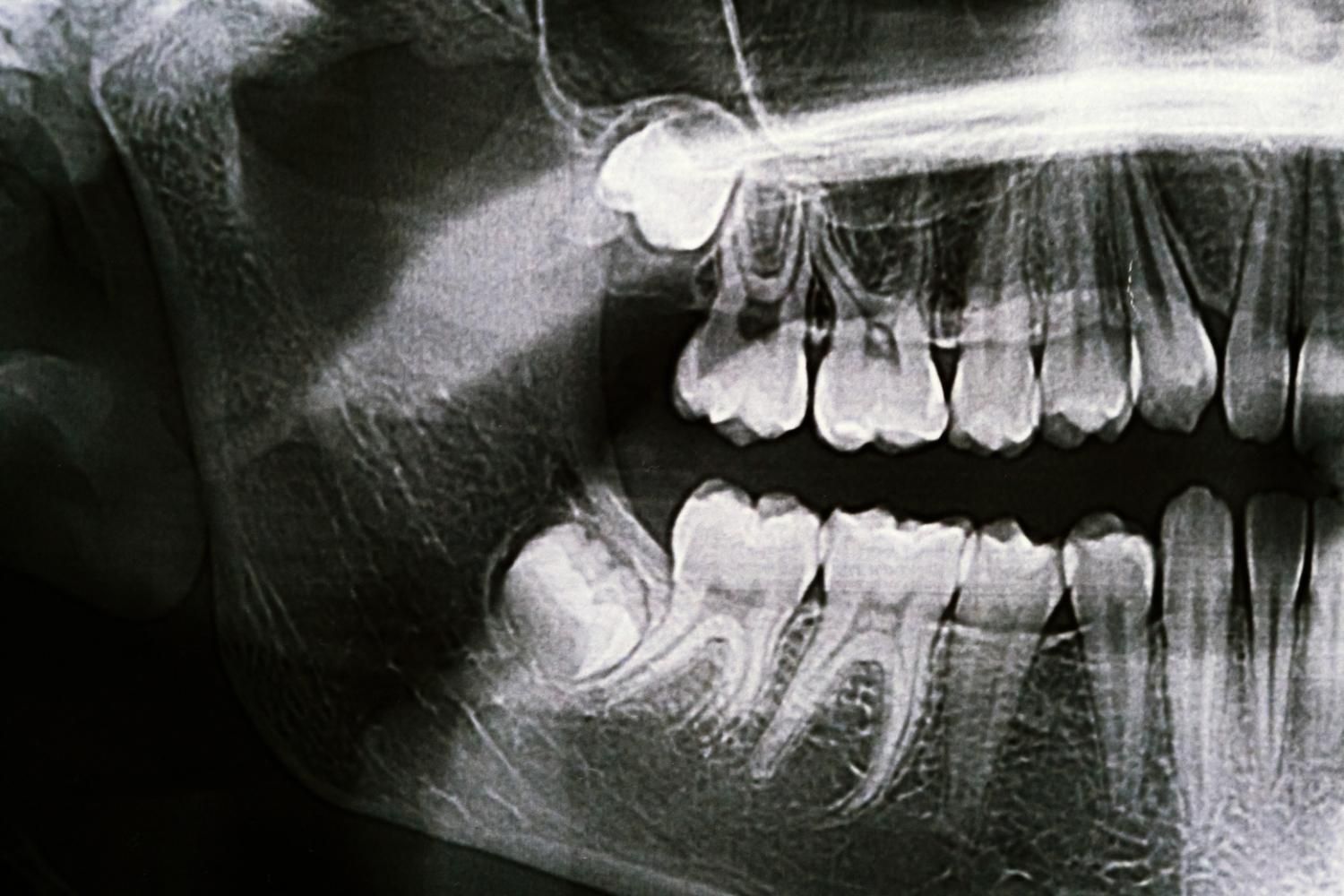Top-Rated Wisdom Teeth Removal Plano TX: Your Guide to a Smooth Recovery
Searching for wisdom teeth removal Plano, TX? This guide will help you find experienced oral surgeons and explain the entire process, from consultation to recovery. You’ll learn what to expect and how to ensure a smooth recovery.
Key Takeaways
- Wisdom teeth commonly emerge between the ages of 17 and 25, often leading to dental problems such as impaction, pain, and infection if not removed early.
- The wisdom teeth removal process includes an initial consultation, extraction under anesthesia, and a crucial post-operative care phase to ensure a smooth recovery.
- Early removal of wisdom teeth is advisable to prevent complications, maintain dental alignment, and enhance overall oral health, particularly benefiting younger patients.
Understanding Wisdom Teeth

Wisdom teeth, also known as third molars, usually make their grand entrance between the ages of 17 and 25. Most people have a total of four wisdom teeth, one in each corner of the mouth. While these late bloomers can sometimes emerge without causing issues, they often don’t have enough room to grow properly, leading to a variety of dental problems.
Without sufficient space, wisdom teeth can become impacted, unable to fully break through the gum line, causing wisdom tooth pain, swelling, and infection. Impacted wisdom teeth often lead to discomfort and can contribute to decay and gum disease if not treated.
Early wisdom teeth removal helps prevent potential issues by avoiding the pain and complications of impacted teeth. This proactive step also improves overall oral hygiene, reducing the risk of trapped food and bacteria. The remove wisdom teeth often involves a minor surgical procedure, especially for partially or fully unerupted teeth.
Why You Might Need Wisdom Teeth Removal
Impacted wisdom teeth are a common issue, affecting nearly 90% of individuals with at least one impacted wisdom tooth. These impacted teeth can significantly impact oral health, leading to severe tooth pain, increased risk of infection, and potential tooth decay.
Wisdom teeth removal is often necessary to prevent overcrowding and misalignment of the other teeth. When wisdom teeth push against adjacent teeth, they can cause bite irregularities and lead to further dental complications. It’s not just about the immediate discomfort but also about maintaining long-term dental health.
Furthermore, untreated impacted wisdom teeth can lead to more severe problems, such as cysts or tumors that target the bone, making early removal crucial. Decay and infection are strong indicators that wisdom teeth need to be removed to prevent further damage to your oral health.
The Wisdom Teeth Removal Process
Understanding the wisdom teeth removal process can ease anxieties and help you prepare for the journey ahead. This dental procedure typically involves an initial consultation and X-rays, wisdom teeth extractions, the actual extraction procedure, and post-operative care and recovery.
Each stage is crucial to ensure a smooth and successful outcome.
Initial Consultation and X-rays

The first step in the wisdom teeth removal process is the initial consultation and X-rays. During this visit, the dentist or oral surgeon will perform a thorough examination of your mouth and take X-rays to assess the positioning of your wisdom teeth. This is a crucial step to determine whether extraction is necessary and to plan the best approach for removal.
Based on the X-ray results, the dentist or oral surgeon will discuss the findings with you and recommend the best course of action. This may include deciding whether to proceed with the extraction immediately or to monitor the teeth’s development over time.
The Actual Procedure
The actual wisdom tooth extraction process involves sedation or general anesthesia to ensure patient comfort. The presence of a trained team during anesthesia management is crucial for safety and proper care.
During the procedure, if the wisdom tooth is covered by gum tissue, the surgeon will make an incision to expose the tooth. The tooth may then be removed in one piece or in sections to minimize the amount of bone removal needed.
Post-Operative Care and Recovery
Post-operative care is vital for a smooth recovery after wisdom teeth removal. Following the extraction, it’s common to experience some pain and swelling. Symptoms of infection include persistent pain and swelling at the extraction site, which should be monitored closely.
Pain management usually involves prescribed medications, with a follow-up visit crucial for proper healing. Consult your doctor for additional pain relief if pain persists.
Potential complications such as nerve damage can cause temporary numbness or tingling in the lower lip, tongue, or chin. Jaw stiffness, although rare, can also occur and typically resolves within a couple of weeks.
Following specific care guidelines provided by your oral surgeon is crucial to prevent complications like infection and dry socket during the recovery period.
Choosing the Right Oral Surgeon in Plano, TX

Selecting the right oral surgeon is vital for successful wisdom teeth removal. In Plano, TX, you can find experienced oral surgeons who offer expertise in dental implants and advanced procedures. Look for professionals with comprehensive training in both dentistry and medicine to handle complex dental issues effectively.
Patient testimonials often highlight the efficiency and cost-saving treatment options provided by the Innate Dental Solutions, known for their commitment to quality care and skilled staff.
When selecting an oral surgeon, consider their experience, patient reviews, and the range of services they offer. This ensures that you receive the best possible care tailored to your specific needs.
Costs and Insurance for Wisdom Teeth Removal
The cost of wisdom teeth removal can vary significantly, typically ranging from $140 to $400 per tooth. The complexity of the extraction, especially for impacted teeth, tends to increase the cost.
Insurance plans generally cover a portion of the removal costs, often between 50% to 80%, depending on your specific plan. It’s advisable to consult with your dental insurance company beforehand to get an accurate estimate of your coverage and potential out-of-pocket expenses.
Many oral surgeons offer dental implants financial assistance options, such as payment plans and acceptance of FSAs/HSAs, to help manage costs for those without sufficient insurance coverage for dental surgery.
Potential Complications and How to Avoid Them
Wisdom teeth removal can sometimes be complicated if the teeth have not fully erupted. Post-extraction, patients may experience facial swelling and minor discomfort, which typically begins to improve after a few days. The healing process for the gum area usually takes three to four weeks, with most discomfort and swelling subsiding within the first two weeks. Proper post-operative care and following your surgeon’s instructions are key to a smooth recovery.
Maintaining good oral hygiene and monitoring for signs of persistent pain or swelling helps prevent complications like infection. Adhering to the prescribed care routine typically ensures a smooth recovery.
Benefits of Removing Wisdom Teeth Early
Removing wisdom teeth early can prevent numerous dental issues, including decay and gum disease. This proactive approach helps preserve the alignment of adjacent teeth and prevents overcrowding. Early extraction is particularly beneficial for maintaining the results of previous orthodontic treatments, ensuring that your smile remains straight and healthy. Additionally, addressing impacted wisdom teeth early can relieve discomfort and enhance overall oral health.
Younger patients, in particular, benefit from quicker recovery times and fewer complications during early extraction. This makes early removal a wise choice for long-term dental health and the development of permanent teeth.
Summary
In summary, wisdom teeth removal is a crucial dental procedure that can prevent a host of future complications. From understanding the role of wisdom teeth to navigating the removal process and choosing the right oral surgeon, being well-informed can lead to a smoother, more successful experience.
Taking proactive steps, such as early extraction and following post-operative care guidelines, can enhance your oral health and ensure a quicker recovery. Don’t wait for wisdom tooth pain to disrupt your life—take action today for a healthier, pain-free tomorrow.




